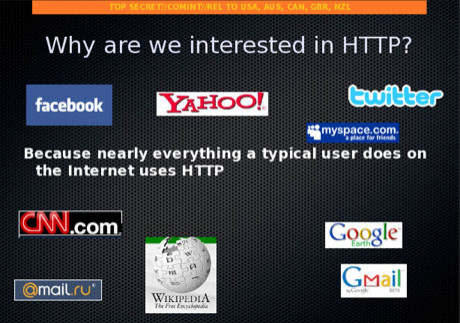XKeyscore: Edward Snowden Reveals New NSA Surveillance Program
Edward Snowden has leaked more documents that reveal yet another NSA secret surveillance program. XKeyscore allows NSA analysts to search through vast databases of emails, chats and browsing histories from millions of people without any prior authorization. In the documents leaked by Snowden, which the Guardian published Wednesday, the NSA bragged that XKeyscore is their “widest-reaching” program.
In a June 10 video, Snowden said as an NSA agent he had the ability to “wiretap anyone, from you or your accountant, to a federal judge or even the president, if I had a personal email.” Intelligence officials have denied this claim, but the documents on XKeyscore seem to provide more details on what Snowden was referring to.

The documents are training manuals for XKeyscore, and detail how the NSA can mine enormous databases by filling out a simple on-screen form. The request doesn’t get review by any court or need any clearance from higher-ranking NSA officials. According to one document, the XKeyscore search can cover “nearly everything a typical user does on Internet,” and even monitor a person’s online activity in real-time.
It isn’t just metadata that the analysts can see. XKeyscore allows the NSA access to the content of emails and chats. XKeyscore can search by name, telephone number, IP address and keywords. It does not require a warrant, nor does the person performing the search require legal authority.
XKeyscore can also monitor activity on social media. Using the same tool that allows an NSA analyst to read the contents of stored emails, XKeyscore can read the content of Facebook chats and other private messages. An NSA analyst simply needs to input a Facebook user name and date range into a XKeyscore search.
NSA seems to believe that the system is worth it. It claimed in one document that it had captured 200 terrorists with XKeyscore by 2008. One slide indicated that XKeyscore can search HTTP activity with a keyword, allows the NSA to monitor “nearly everything a typical user does on the Internet.”

The Guardian published the documents the same day that senior intelligence officials met with members of Senate to release classified documents about the collection of phone records, PRISM, and the FISA court.
© Copyright IBTimes 2024. All rights reserved.






















